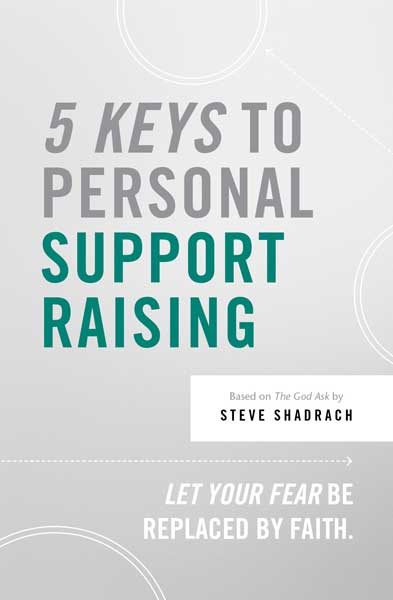
The season of Lent begins this month. These forty days before Easter were set aside by the early church as a time of reflection and repentance. It is a period when we as Christ-followers acknowledge our brokenness and journey with Him to the Cross, where we are made whole again.
Engaging in the ancient spiritual discipline of repentance over the next six weeks can significantly impact not just our souls, but also our support raising. As I coach folks in fundraising, I’ve become convinced there are two pervasive attitudes from which we as North Americans need to repent if we are to live in the fullness of Christ as we build ministry partnerships with our donors.
Repenting from a Scarcity Mentality
Although we say we serve a God who “owns the cattle on a thousand hills,” we often approach our fundraising from the perspective of deficit and lack. There’s an unarticulated assumption that if people give to another ministry, they won’t have enough to give to the work to which I am called. When it comes to the Lord providing resources, some workers fear there won’t be enough to go around. And there’s a subtle feeling that poverty is some kind of requirement for spirituality. David Bell writes, “Embracing God’s abundance takes work. It isn’t the natural inclination of our culture that tends to look at life as a ‘zero-sum game.’”
Scripture paints a different picture of the God we serve. It is a picture of a Provider God who delights in giving good gifts in abundance and who calls his people to be generous in the same way He is generous (see Ps. 36:7-8; 2 Cor. 9:7-8; Phil. 4:19). An attitude of scarcity, whether conscious or unconscious, not only affects our own spiritual health negatively, but can also wrongly shape other people’s images of God.
If we want to invite God’s people to experience the joy of giving, we need to first repent of our propensity to embrace a scarcity mentality.
Repenting from a Self-Sufficiency Mentality
As North Americans, we pride ourselves on our self-sufficiency and independence. In the early years of our nation, the “Protestant work ethic” embraced by the church emphasized the need for individuals to work hard and be diligent as a display of personal salvation. Today, the media sends us continual messages encouraging an individualist view of life: “do it your way,” “take charge,” “you deserve it.” In this context, support raising, which requires us to depend on others for funds, can create feelings of shame, embarrassment, guilt, and inadequacy.
Again, Scripture paints a different picture—one of a body that can function well only when every part is connected to the rest and where each part is dependent on the other parts (see Rom. 12:1-8; 1 Cor. 12:4-30). In this image, ministry happens in the context of community, with each person bringing his or her gift to accomplish the task.
Too often we are guilty of believing we can pursue our calling on our own. We don’t like asking for financial gifts because we don’t like the feeling of being (or appearing) needy. A. W. Tozer put it this way: “God is looking for people through whom He can do the impossible. What a pity that we plan only the things we can do ourselves.”
Lord, You intend that we live fully, yet we are reluctant to open our hands to receive Your abundance. We prefer to do things for ourselves, and to trust that we know what is best. We confess that we are often afraid that there will not be enough. Not enough time. Not enough money. Not enough love. Yet You promise us that there will always be enough when we trust You. Forgive our fear and lack of trust. By Your Holy Spirit, fill us with Your love and Your power, that we might joyfully serve You and provide others with the opportunity to also be part of that joy.

